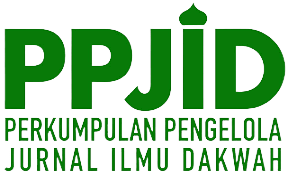Mobile-Based Psychomotor and Affective Development Application for Students
DOI:
https://doi.org/10.18196/jicc.v3i1.58Keywords:
Mobile Application, Psychomotor, Affective StudentsAbstract
Developing affective and psychomotor values in children is highly important and should be prioritized in educational objectives. This is beneficial for shaping individuals who are not only intellectually intelligent but also possess directed skills and a positive attitude towards others, as high cognitive achievement is insufficient without accompanying skill and behavior values. The author developed an application to improve students' psychomotor and affective abilities. The waterfall method was utilized in the creation of the application. Features were designed to facilitate good communication between parents and teachers in developing children's psychomotor and affective skills. Twelve features are purposed to assist parents and teachers in supporting the optimal development of children's competencies based on parenting dimensions.
References
Afiifah, K., Azzahra, Z. F., & Anggoro, A. D. (2022). Analisis Teknik Entity-Relationship Diagram dalam Perancangan Database Sebuah Literature Review. Intech, 3(2), 18–22. https://doi.org/10.54895/intech.v3i2.1682
Afrilia, A. M. (2017). Penggunaan New Media Di Kalangan Ibu Muda Sebagai Media Parenting Masa Kini. Jurnal Komunikasi Dan Kajian Media, 1(1), 31–42.
Arslan, A. (2021). Determining educational needs of families for a value-oriented family education program. African Educational Research Journal, 9(1), 205–217. https://doi.org/10.30918/aerj.91.21.013
Bali, M. M. E. I., & Musrifah, M. (2020). The Problems of Application of Online Learning in the Affective and Psychomotor Domains During the Covid-19 Pandemic. Jurnal Pendidikan Agama Islam, 17(2), 137–154. https://doi.org/10.14421/jpai.2020.172-03
Haryadi, T. (2015). Warungku. Jurnal Desain Komunikasi Visual & Multimedia, 39-50.
Herentina.T, Y. M. (2012). Peran Orang Tua DalamKegiatan Bermain Dalam Perkembangan.
Huda, R. S., Kurniawan, A. F., & Mukhozin, M. (2022). Penerapan Firebase Pada Aplikasi E- Wisata Berbasis Android. Stains (Seminar Nasional Teknologi & Sains), 1(1), 247–256. Retrieved from https://proceeding.unpkediri.ac.id/index.php/stains/article/view/1444.
Huda, S. M. (2018). Kerjasama Guru dan Orang Tua Dalam Meningkatkan Hasil Belajar Siswa Kognitif Anak Usia Prasekolah (5-6 Tahun). Jurnal STIKES, Vol 5(No 2), 121–132.
Kurniawan, H., & Hermawan, R. (2016). a ṣ - ṣ ibyan ,. Program Parenting Untuk Membentuk Karakter Anak Usia Dini Di Lembaga Pendidikan Anak Usia Dini, 1(1), 29–39.
Mawarni Purnamasari, & Na’imah, N. (2020). Peran Pendidik dalam Konsep Psikologi Perkembangan Anak Usia Dini. Jurnal Pelita PAUD, 4(2), 295–303. https://doi.org/10.33222/pelitapaud.v4i2.990
Nasution, S. (2019). Pendidikan lingkungan keluarga. Tazkiya, 8(1), 115–124. http://jurnaltarbiyah.uinsu.ac.id/index.php/tazkiya/article/view/457
Natsir, N. F., Aisyah, A., Ihsan, M. N., Islam, U., Sunan, N., & Djati, G. (2018). PENDAHULUAN Pendidikan merupakan tanggung jawab bersama antara orang tua pendidik dan masyarakat . Keterpaduan antara mereka dibutuhkan untuk meningkatkan mutu pendidikan di Indonesia. Tugas utama dan pertama pendidikan bagi seorang anak adalah orang tu. Jurnal MUDARRISUNA, 8(2).
Prasetya, A. F., Sintia, & Putri, U. L. D. (2022). Perancangan Aplikasi Rental Mobil Menggunakan Diagram UML (Unified Modelling Language). Jurnal Ilmiah Komputer Terapan Dan Informasi, 1(1), 14–18.
Purnamasari, F. B. (2019). Hubungan antara guru dan orang tua melalui program parenting perkembangan anak. Jurnal Pendidikan Luar Sekolah, 13(1), 11. https://doi.org/10.32832/jpls.v13i1.2775
Sari, I. D. P., & Rahmah, T. H. (2019). Virtual Discussion for EFL Students Establishing Three Domains: Cognitive, Affective, and Psychomotor. International Journal for Educational and Vocational Studies, 1(3), 249–253. https://doi.org/10.29103/ijevs.v1i3.1586
Wahid Abdul, A. (2020). Analisis Metode Waterfall Untuk Pengembangan Sistem Informasi. Jurnal Ilmu-Ilmu Informatika Dan Manajemen STMIK, (November), 1–5.
Wal, L. Van Der. (2020). Parent-Teacher Relationships and the Effect on Student Success. Laura Van Der Wal.
Wijoyo, H., Santamoko, R., Muliansyah, D., Yonata, H., & Handoko, A. L. (2020). the Development of Affective Learning Model To Improve Student’S Emotional Quotient. Journal of Critical Reviews, 7(19), 9292–9297. https://doi.org/10.31838/jcr.07.19.1034
Downloads
Published
How to Cite
Issue
Section
Categories
License
Copyright (c) 2024 Muhammad Miftah, Muhammad Syahrir , Risa Novia Wati, Sella Fadia Septariani

This work is licensed under a Creative Commons Attribution-ShareAlike 4.0 International License.
Journal of Islamic Communication and Counseling is currently licensed under a Creative Commons Attribution-ShareAlike 4.0 International (CC BY-SA 4.0)





